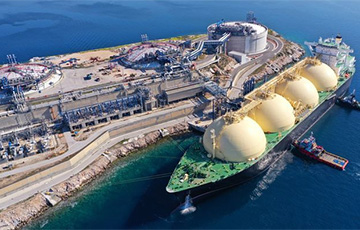EU Considers Gradual Ban On Russian LNG And Aluminum
1- 15.01.2025, 9:39
- 4,666

New details of the 16th sanctions package.
The European Union is preparing to impose an embargo on supplies of Russian liquefied natural gas (LNG) and aluminum, as well as impose restrictions on dozens of ships and disconnect more banks from the SWIFT international payment system, as part of the 16th sanctions package against Russia, European diplomats told Bloomberg.
According to them, the ban on LNG can be carried out in stages, as part of a roadmap that the European Commission will present next month. The main importers of Russian LNG to the EU are Spain, Belgium and France. They should not block the restrictions. At the same time, sanctions against pipeline gas from Russia are not being considered, since Hungary and Slovakia still rely on Russian supplies. According to Bloomberg, if in 2020 Europe received about 10.5 million tons of LNG from Russia, then last year supplies increased to a record 15.5 million tons.
The scale of sanctions against aluminum and the timing of their introduction have not yet been determined. It is possible that they will also be phased in, Bloomberg's interlocutors noted. Prior to this, the United States and Great Britain had already introduced a ban on the import of Russian aluminum. The EU only banned the supply of aluminum wire, foil, and some pipes. According to Trade Data Monitor, from January to October 2024, EU countries imported about 130 thousand tons of aluminum from Russia, which is 6% of the total supply of 2.2 million tons. For comparison: for the same periods in 2023 and 2022, this figure reached 11% and 19%, respectively. Against the backdrop of a decline in exports to the EU, the largest aluminum producer, Rusal, owned by Oleg Deripaska, asked the government for emergency support.
The EU expects to introduce a new package of sanctions against Russia by the third anniversary of the start of the full-scale war in Ukraine, February 24. The Kremlin called the sanctions a “double-edged sword”, warning that they “boomerang” against the interests of the countries that impose them. The Kremlin also assured that Moscow has experience in “minimizing the consequences” of sanctions restrictions.











